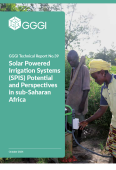
This report evaluates the impact of climate-smart agriculture practices on yields and examines the productivity of key crop value chains and showcases.
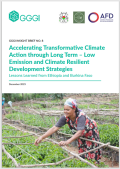
This insight brief presents key lessons learned from Ethiopia and Burkina Faso in their efforts to develop pathway to low-carbon growth and climate resilience.
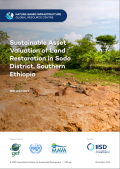
The study also shows that assisted natural regeneration can be an investment-worthy strategy to combat land degradation, support rural livelihoods, and increase resilience to climate change in the country.
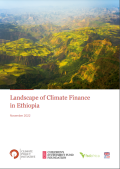
The aim of the study is to inform and facilitate discussions among policymakers and public and private financiers, identifying gaps and opportunities for scaling climate finance in Ethiopia.
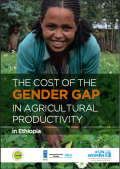
This Report helps to lay the groundwork for deeper investigation as to where to invest for the most cost-effective policies. Our analysis finds that women’s lesser capacity to purchase pesticides, herbicides, and fungicides is an important constraint contributing to the gender gap in farm crop productivity in Ethiopia.
